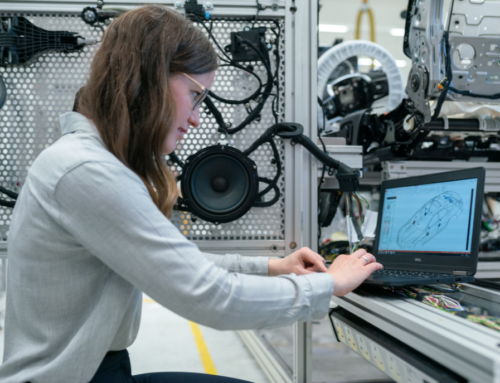The construction industry is undergoing a profound transformation, fueled by technological advancements and shifting demands in the built environment. As new tools, materials, and practices emerge, so too does the need for a workforce equipped to handle these innovations. For companies striving to stay competitive and meet the growing demands of construction projects, recruiting the right talent is more important than ever. However, the landscape of recruitment in the construction industry is evolving rapidly, requiring employers to adapt their hiring strategies.
Technology is reshaping every facet of the construction industry, from design and planning to execution and maintenance. Building Information Modeling (BIM), drones, robotics, artificial intelligence (AI), and augmented reality (AR) are just a few of the groundbreaking innovations that are becoming commonplace on construction sites. These technologies enable faster, more efficient, and safer project delivery, but they also require a new set of skills that traditional construction workers may not possess.
As such, recruitment in the modern construction industry has shifted towards finding candidates with technical proficiency and an aptitude for learning new technologies. This means looking for candidates with expertise not only in traditional construction roles but also in areas such as data analysis, cybersecurity for construction technology, and software development for construction management.
While technology plays a significant role in modern construction, it is still very much a hands-on industry. However, the nature of the skilled labor required is changing. High demand for technical specialists—such as BIM coordinators, CAD (Computer-Aided Design) operators, and drone operators—has led to an increased focus on recruitment for positions that require a blend of technical and practical construction knowledge.
In addition to these emerging technical roles, there is a continued need for workers in traditional skilled trades such as electricians, plumbers, welders, and carpenters. However, these workers need to be well-versed in modern tools and technologies that integrate with the overall construction process. For example, electricians may need to be familiar with smart home technology, or welders may be asked to operate robotic welding equipment.
The shortage of skilled labor in these traditional trades is a well-documented issue, and it is only expected to grow in the coming years. According to a report from the Associated General Contractors of America (AGC), nearly 80% of construction firms are struggling to find qualified workers. This talent gap is further exacerbated by an aging workforce, with many skilled workers retiring, leaving a significant void that younger generations are not filling at the same pace.
As the built environment evolves, so do the skills needed to meet its demands. Sustainability and green building practices have gained significant traction in recent years, driven by both environmental regulations and market demand. This shift has spurred the need for new talent in areas such as energy efficiency, renewable energy systems, and sustainable building practices.
Moreover, the rise of smart cities and the increased integration of technology into buildings—such as Internet of Things (IoT) devices, automated systems, and data-driven building management systems—has created a demand for tech-savvy workers who can bridge the gap between construction and digital infrastructure.
Construction companies that want to remain competitive must be prepared to recruit talent who not only have construction expertise but also understand how these innovations fit into the overall vision for the built environment. For example, recruiting professionals with experience in building automation systems, smart building design, or energy-efficient construction practices is becoming more crucial.
As the construction industry continues to evolve, so too must the workforce that drives it. Recruiting the talent necessary to build the future of construction requires an understanding of both emerging technologies and traditional trades. By adapting to the shifting demands of the built environment, construction companies can ensure they are well-positioned to succeed in a rapidly changing industry. Emphasizing a blend of technical expertise, hands-on experience, and adaptability will help bridge the gap between today’s workforce and the workforce of tomorrow.
Attracting and retaining top talent in construction will not only drive industry success but also contribute to shaping the cities and communities of the future.








Leave A Comment